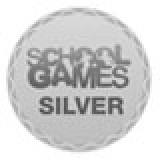History
Subject Leader: Mrs Garlick
History at Airedale Junior School allows our children to develop a real sense of chronology and to understand how the past has influenced their lives today. We teach our children to investigate people and events from the past and by doing so, develop their skills of enquiry and interpretation.
The Primary Objectives of teaching History at Airedale Junior School are:
- To foster in children an interest and curiosity in the past
- To develop a sense of chronology.
- To enable children to know about significant events and people in local, British and world history, appreciating how things have changed over time.
- To help children understand society and their place in it so that they develop a sense of their cultural heritage.
- To develop in children the skills of enquiry, investigation, evaluation and interpretation whilst understanding historical changes, consequences, similarities and differences.
- To help children understand that differences are not a barrier to achievement
The Airedale History Curriculum
Our curriculum is skills and knowledge based, including full coverage of the National Curriculum which meets the needs of all Airedale Infants and Junior pupils. This takes into consideration the school setting, local, national and international developments.
Our pupils are offered a very wide range of experiences within the curriculum to extend their understanding of themselves and the world in which they live. The children develop skills, attitudes, and values to enable them to become lifelong learners and equip them for the future. The ability to learn is underpinned by the teaching of basic skills, concepts, and values. There should be no limits to curiosity, and we instil a thirst for new experiences and knowledge.
We actively promote British Values and Social, Moral, Spiritual and Cultural differences. We also provide opportunities for our pupils to learn about the contribution of Britons to innovation, excellence and changes in the world.
The Curriculum has been organised into topics which are a vehicle to promote our school values and curriculum drivers, and allow for the development of skills and understanding within and across the subjects. Our curriculum topics allow the teaching of threshold concepts that are the fundamental ‘learning elements’. These concepts are built upon and developed within the year, across the year and over the course of the school experience.
Adaptive teaching (aka agile teaching) recognises: individual needs; the need for varied and additional resources; when, where and how additional support can be facilitated; and how children learn best. Teachers must plan lessons so that all pupils can study every national curriculum subject and experience success against age-appropriate expectations and/or their own bespoke personal targets.

History permeates throughout our curriculum and links closely to our school drivers. Our TRUST values of Ambition, Bravery and Respect underpin our school ethos. Through studying specifically chosen significant people from the past, we provide our children with the understanding of being ambitious and where this can lead to. Our children are exposed to chronology and the lives of people in the past so that they can see and respect how these events have shaped the world in which we live. Much of history is beyond the realms of children’s imaginations and therefore we encourage our children to be brave through the enrichment experiences that we provide in order to bring our history curriculum to life.
Oracy and communication are fundamental skills that we believe equip our children to be life-long learners. This is promoted is history through the use of a variety of technical vocabulary, sources of evidence and use of carefully planned speaking and listening activities in order to develop historical enquiry and promote inquisitive conversations. The vocabulary in history is very much dependent on knowledge of specific time periods so we have carefully chosen progressive vocabulary which we expect children to know, understand and apply in context.
Being independent and fostering a love for learning is crucial in our school. This is promoted in history regularly through the use of enquiry-based lesson where we encourage children to have enquiring minds. Investigative ‘BIG questions’ are used to further develop and deepen children’s knowledge and understanding and give their learning a sense of purpose.
Through studying a range of people from the past and present, who have had an impact on our world today, children are taught to challenge past stereotypes connected to gender, wealth, disability and cultural background. This increases the children’s cultural capital and gives them a deeper understanding of the diverse world we live in.
How do we ensure progression of knowledge and skills?
At Airedale Junior School, we have in place, for each subject area, a knowledge and skills progression document, which is used for planning, to ensure sequenced and appropriate content for specific year groups. Teachers are clear on the learning and expectations for each year group, as this has been carefully selected and mapped out so that children are building on prior knowledge and skills each term and each year. Whenever possible, we teach through a themed approach, to enable our children to embed and revisit learning, make connections and develop a greater depth of understanding within the subject. The content is chosen in order to make effective links with key cross-curricular themes, reflect expectations in the National Curriculum programmes of study and engage and inspire children’s curiosity and interest in history.
Ultimately, our curriculum is designed to ensure that pupils know more and remember more, through the use of progressive skills. Within these documents there are opportunities for differentiation, in order to meet the needs of all learners.
How is the subject taught?
When children are in history lessons, they are explicitly told that they are going to be ‘historians.’ They are then reminded of the key skills that they will learn, use and develop within this subject, specifically linking to their prior learning.
The knowledge content is carefully selected and skilfully taught alongside the key skills and historical concepts, which are threaded throughout the History curriculum. This allows children ample opportunities to revisit, reinforce and embed learning.
Within each unit of study, we pose investigative ‘BIG questions’ in order to engage and motivate them as learners. This enables the children to further develop and deepen their knowledge and understanding whilst driving their own learning forward by questioning, investigating and solving problems.
Within each History lesson, children are introduced to and reminded of key vocabulary, in order to promote oracy and language acquisition. Specific questioning is used to check children’s understanding and prior knowledge, before new concepts, skills or knowledge are introduced. Modelling is used by class teachers to clarify expectations, children are then given plentiful opportunities to consolidate, build upon and apply basic skills and knowledge, across a series of lessons, as well as across the year.
Look at what we have been learning in lessons:
Look at what we have currently been up to in our lessons!
In accordance with the National Curriculum Key Stage 2 children will be taught about:
- changes in Britain from the Stone Age to the Iron Age
- the Roman Empire and its impact on Britain
- Britain’s settlement by Anglo-Saxons and Scots
- the Viking and Anglo-Saxon struggle for the Kingdom of England to the time of Edward the Confessor Examples
- a local history study
- a study of an aspect or theme in British history that extends pupils’ chronological knowledge beyond 1066 a significant turning point in British history,
- the achievements of the earliest civilizations
- Ancient Greece – a study of Greek life and achievements and their influence on the western world
- a non-European society that provides contrasts with British history
How do we know that our children are making progress?
Ongoing assessments of the children’s knowledge and skills are made by the class teacher. Misconceptions are addressed and next steps carefully planned. Children’s outcomes are compared to the subject specific skills and knowledge documents. At the end of a block of discrete teaching, our children complete their ‘Big Question’ which is an independent piece designed to showcase and assess their learning throughout a unit.
Subject leaders gather an overview of children’s outcomes in each subject area. This is used to plan appropriate next steps for their future learning, as well as provide an overview of learning within a subject area cross the whole school.
What wider opportunities are provided for our children?
Children have the opportunity to participate in regular visits out to places with historical links, as well as work with visitors in school to enhance their understanding of history. This is so that they can begin to understand what it was like to live through a historical event or another period in history. Visits around the locality and participating in local events allow children to reflect on and learn about the history of their locality.
History: Further Information & Links:
- Link To National Curriculum (History)
- Link To BBC Bitesize KS2 History
- Oak National Academy - History
Useful Websites & Links to Our Visits








